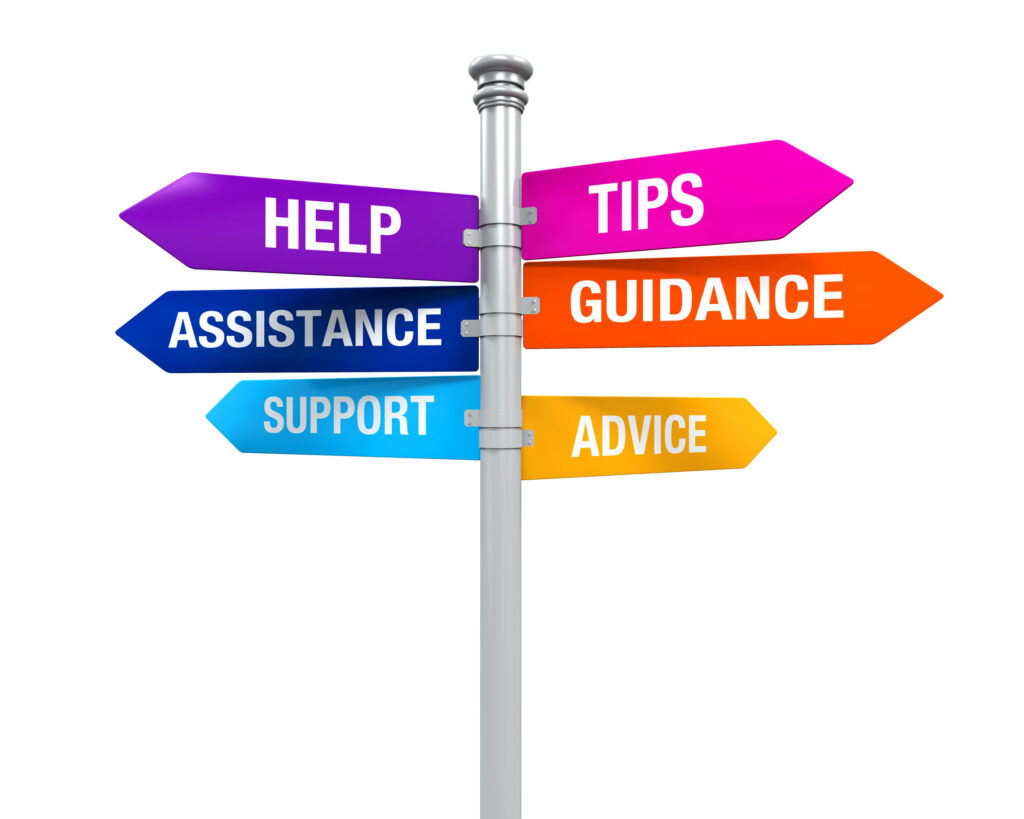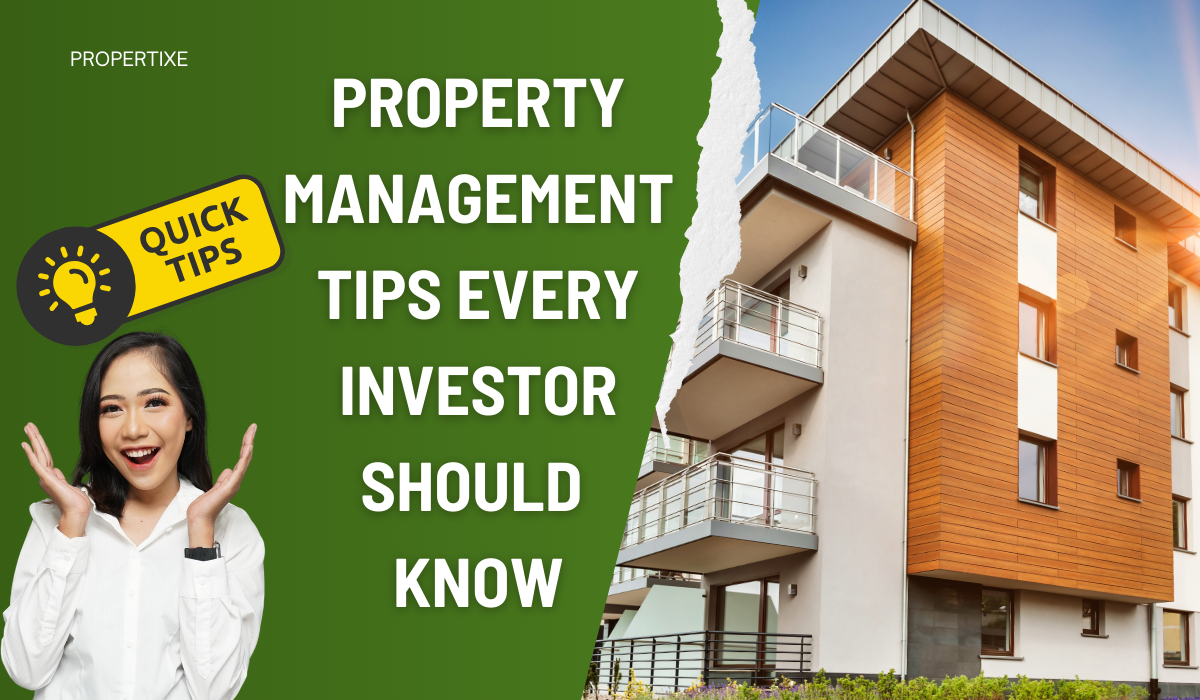Introduction
Investment in real estate has been one of the most reliable methods to accumulate wealth over the last several years. As the market for real estate continues to expand and change, investors are finding that owning a home is not enough. Proper property management tips are crucial to the success of the investment over time. If you don’t, you could discover that your money is slipping across your fingers instead of growing slowly.
Management of property isn’t only concerned with collecting rent or managing maintenance issues. It’s all about improving the efficiency of your properties, and making sure that they run that your property runs smoothly and efficiently. Whatever your situation, whether you’re investing for the first time, or an experienced property manager understanding the specifics managing your property’s needs can make a difference to the outcome of your investment, and also a costly headache.

In this article, I’ll go over various property management strategies which every investor must know. In addition, I’ll share my own experience of the challenges and benefits of managing property and give suggestions based on real-world cases.
1. Know Your Market Inside and Out
The first and most important step to take in property management is knowing the marketplace in which you are investing. If you’re considering commercial, residential, or even vacation homes, understanding the market’s demographics, pricing changes, and local dynamics will help you establish a strategy for managing your property.
According to NAR, for instance. National Association of Realtors (NAR) said that the median rent for a two-bedroom home within the U.S. was $1,250 as of 2020. Being aware of the rental rates in the area you live in can allow you to establish realistic pricing and keep from underpricing your property, resulting in more rents and higher vacancy prices.
If you know the market and its is a good place to make informed decisions about everything from the way you determine the amount of rent you should charge to what potential tenants to aim for.
2. Regular Property Maintenance is Key
One aspect that shouldn’t be ignored is the routine of maintaining your property. Maintenance is among the most expensive aspects of managing property but it’s an essential aspect to keep your tenants content and to ensure the long-term viability of your investment.
A study conducted by The Institute of Real Estate Management (IREM) discovered that homes that maintain their properties regularly had a 15% greater occupancy rate when compared with properties that failed to keep their properties. If you address minor problems early, you can avoid costly, larger repair costs later on.
It’s been my experience that unmaintained plumbing or roofs not only cost a lot of money to fix but could also turn off tenants. I always try to be in the loop with small maintenance jobs to avoid their snowballing.
3. Use Technology to Streamline Management Tasks
Technology has revolutionized the management of properties over the last few years. Rent payment portals on the internet, as well as automated requests for maintenance and even virtual leasing, are only several examples of software that make property management easier and more efficient.
In a study conducted in 2021 by Buildium, 54% of property owners use property management software for things like Communication with tenants, maintenance, and rent collection. This software can help you save many hours and take away many of the manual tasks involved in managing property.
I can’t even imagine managing my portfolio without software to manage properties. It helps me stay well-organized and also keeps me constantly in contact with tenants. This helps reduce problems and improves the retention of tenants.
4. Screen Tenants Carefully
Tenant selection may be among the more critical factors in property management. An excellent tenant pays rent punctually, takes charge of their property, and will be an asset to the neighborhood. The tenants who are not satisfied are nevertheless, susceptible to creating incessant problems that can range from unpaid rent and property damage perhaps even legal issues.
The American-Apartment-Owners Association (AAOA) recommends a multi-step procedure when screening tenants: verify their credit scores and verify employment. Request references about their rent as well as conduct an identity test. The thorough process will assist in picking tenants who aren’t financially reliable or trustworthy.
I can’t stress enough how important it is to conduct thorough tenant screening. There have been tenants who appear to be great at first, but afterward, they realized that they were not able to pay the cost of rent. The experience was an enormous help in screening potential tenants.
5. Understand and Follow Local Laws
The primary aspect of managing your property is adhering to the laws of both states and local authorities. They govern everything, including tenant rights, through building codes and eviction procedures. In the absence of these laws, you could be subject to lawsuits, penalties, and damage to your image.
In California, it is a state law that landlords offer tenants 60 days’ notice prior to raising rent in a lease for the long term. Basically in some cities, like San Francisco, rent control laws limit the amount of rent you are able to increase regardless of the number of tenants.
I’ve had to deal with a variety of legal rules in various locales and have learned that a thorough understanding of the local laws is worthwhile. This has helped me stay clear of potential problems and keep in good standing with my tenants.
6. Be in constant contact with tenants.
Communication is a key element for a positive tenant-landlord connection. On a regular basis, keeping tenants updated about the status of their property and any changes in policies or scheduled maintenance can build trust and increase retention of tenants.
Research conducted by TransUnion revealed that almost forty percent of tenants could be more satisfied with their homes when the landlord was able to communicate effectively with the tenants. It’s not only regarding responding to requests for maintenance quickly; it’s also about setting up a culture of trust and honesty.
My main goal was always to strive to be as accessible to my tenants as I can. If my tenants feel that I’m always attentive, active and receptive and responsive, they’re less likely become a cause of contention or leave when their lease is up.
7. Implement Effective Rent Collection Practices
Timely collection of rent is essential to ensure an ongoing flow of cash. One way to ensure prompt payments is to define clearly expectations for tenants at the beginning. Verify that the lease contract specifies the date when rent must be paid and charges for late fees and the acceptable methods of payment.
Most property owners use automated systems to remind tenants of the due date for rent and also to charge late charges as needed. In a study by Rentec Direct, properties using computerized systems to collect rent experienced an increase of 30% in timely payments.
I use an automated system for my rent payment. It can result in significant differences. It’s easy for tenants and I don’t have to request payment every month. It’s a simple thing to contemplate and can help me make sure the flow of cash remains stable.
8. Regularly Review Your Property’s Financials
If you’re the owner of a home You must evaluate regularly the financial performance for your home. It’s crucial to be aware of your expenses, income as well as your profit. The more you keep track of your data, the more you are able to determine with confidence the best way to distribute funds and the best way to expand your portfolio.
The Institute of Real Estate Management advises you to review your financials each quarter, at the very least. If you find areas where expenses are increasing, such as the cost of maintenance or utilities, then it is possible to take action to cut these costs.
Reviewing the quarterly financials helps me get a better understanding of the performance of my properties. It helps me adapt my approach as needed, be it the increase in rents or the addition of improvements in order to boost the value of the property.
How to Handle Tenant Disputes Effectively
The article discusses Communication and screening for tenants, but it does not discuss the resolution of tenant disputes. It is a problem that has a significant impact on the vast majority of investors in property. Tenant disputes can be caused by a range of reasons such as disturbances to the property such as noise, disturbances, or disagreements regarding the lease’s conditions. Knowing how to deal with the dispute is vital in maintaining a positive tenant-landlord relationship and avoid legal issues.
What to Do:
- Make Clear Expectations: Create clearly defined rules for the lease agreement in order to avoid any confusion in the future.
- As a neutral mediator, Serve as a mediator between tenants when issues arise and ensure that all parties have a voice and that the final decision is equitable.
- Document Everything: Make documents of any complaints or resolutions. It is important to keep these records in case disputes escalate into legal proceedings.
- Be aware of your rights: Acquaint you with local laws regarding disputes between tenants and the process of eviction.
How to Handle Property Turnover and Minimize Vacancies
The percentage of properties that are vacant are one of the most significant problems property owners confront. tenants who move out may experience small losses in their income that can lead to costs for repairs on the property, or advertising and screening tenants. Effectively managing the turnover of tenants and limiting vacancies at a minimum are the most important aspect to maintain a steady flow of cash.
What to Do:
- Prior to the move: Advertise the property prior to when the current tenant leaves. This will allow for a more smooth transition with the least amount of disruption.
- Provide incentives to renew leases. Offering small rewards for lease renewals, like small upgrades or reductions in rental for long-term tenants, will help ensure that your rental rates are lower.
- Be sure to have a quick turnaround time. If tenants leave immediately, make any needed repairs or cleanup to make your property ready for new tenants.
- Make use of technology. Online rental listing services, as well as social media platforms, can assist renters find tenants faster.
What Are the Best Insurance Policies for Rental Properties?
Investors in real estate often do not realize the significance of insurance for their property as it is crucial for protecting your investment from unforeseeable events such as natural catastrophes as well as theft and the result of a tenant’s negligence. Insurance policies vary, and not all will be the same, so it’s crucial to pick the appropriate one that can protect your home.
What to Do:
- Leasing Insurance for Landlords: This kind of insurance typically covers damages to property as well as liability for injuries, as well as the loss of rental revenue.
- Renters Insurance: Although it isn’t a requirement that the landlord normally has to worry about, giving tenants renters’ insurance may lower their chance of being sued.
- Umbrella Insurance: This gives an additional level of protection that goes beyond the limitations of landlord insurance policies and protects you from larger demands, like lawsuits brought against residents or guests.
- Examine your insurance coverage frequently: Make sure the insurance policy will cover any changes that are made to the the property of type (e.g. rental property with leases for a short period).

Conclusion
Property management is an intricate and dynamic process that requires a comparable degree of expertise, knowledge and innovative thinking. In the beginning, it’s about understanding your customer’s needs to making sure that you’re regularly in contact with tenants, every one of these methods is essential to maximize the profits you earn of your investment in property. If you follow the guidelines in this post can help you lower risk, improve its value home and build a lucrative property portfolio.
Property management, in the end, is all about making informed, active decisions that will benefit both the owner as well as your tenants. Even though challenges can be expected, having a solid understanding of the fundamentals of successful management of your property will guarantee that your investment will continue to grow.
FAQS
1. What is the definition of property management? How important is it for investors in real estate?
Property management is managing, controlling, and supervising real estate property. It involves things like tenant screening, rent collection, maintenance, and the assurance of legal conformity. Proper property management is vital as it protects your investment, guarantees constant cash flow, and may increase the value of your property as time passes.
2. What do I need to know about the rent I should set for my house?
To find the most appropriate rental cost, it is essential to look into the local market as well as the rental rates of similar properties in the vicinity. Factors like the size of the property and location, condition, and other amenities can all affect rent. Tools and platforms online, such as Zillow as well as Rentometer, are able to provide helpful estimates.
3. What’s the most frequent error that property owners make while taking care of their property?
One of the most frequently made mistakes is that tenants are not screened correctly. A poor selection of tenants may result in late payments as well as property damage and litigation. Conduct complete background checks and credit checks and confirm references prior to signing lease agreements.
4. When should I check my house?
Regular property inspections are vital in ensuring that your home is maintained. I suggest conducting a thorough check at least every other calendar year. You should periodically conduct inspections after large storms or if tenants complain about any problems. Regular inspections can help you spot small issues before they escalate into larger and more costly repairs.
5. What are the most effective methods to engage tenants?
Communication that is clear and transparent Communication that is clear and open is essential. Utilize online portals to handle lease payments and maintenance requests, But also ensure that you have individual touch points like regular phone calls or emails to verify your status. Quickly respond to any inquiries or complaints and give tenants notice in advance to schedule maintenance or inspections.
6. How do I stay out of the legal pitfalls of being an owner of a property?
For the sake of avoiding legal complications, Be aware of the local laws governing tenant-landlords, such as eviction processes, rent control rules, and building codes. Be sure that the leases you sign adhere to the strictest standards and conform with the laws of your state. If you are unsure, seek the advice of a lawyer when writing or revising the agreements.
7. Do I have to manage my property by myself or employ an experienced property manager?
The decision to run your properties by yourself or employ the services of a property manager will depend on the amount of property that you manage and the amount of ability to manage your time and knowledge level. If you own multiple properties and don’t have the skills or time to manage them, hiring a property management company could save you time and cut down on the risk. If you own the smallest of properties and would prefer the hands-on approach to taking care of them yourself, it is better value.
8. How can you best deal with the payment of late rent?
Make clear the date of rent due as well as penalties for late payment in your lease contract. If the tenant is in arrears and needs to be reminded, send them a friendly notice and explain the consequences. If the problem continues, you might consider setting up a late fee or establishing an official payment plan. The consistency and firmness of your policies are crucial in dealing with late payments.
9. What role can technology play in managing property?
The use of technology has grown increasingly important in the modern world of property management. Software for managing property can simplify the process of collecting rent, maintaining demands, and communicating with tenants. Online payment and virtual leasing platforms can make the process easier and more user-friendly both for landlords and tenants.
10. What can I do to improve the retention of tenants?
In order to increase the retention of tenants, make sure to maintain an excellent relationship with them through prompt communications, frequent maintenance on the property, and responsiveness to the needs of tenants. Giving incentives such as rent renewal rewards or taking care to address issues with tenants promptly could make tenants feel more comfortable and help reduce the amount of rent turnover.

